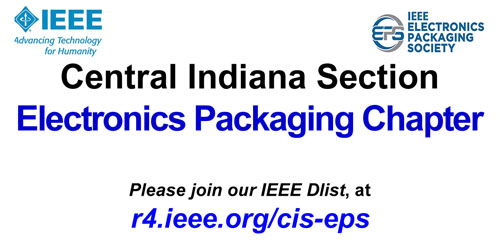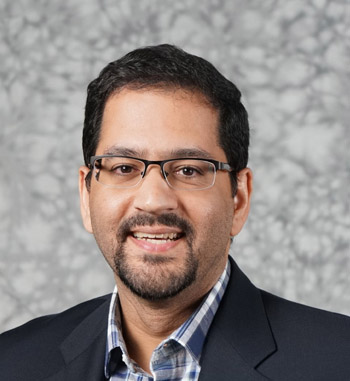Heterogeneous Integration Innovations Enabled by Glass-Core Packaging and 3D Technologies
-- high-density packaging, die integration, connectivity, 3D, glass-core, panel array, mm-wave, digital ...

In recent years, the field of advanced packaging has taken center stage as the semiconductor industry pursues ever more energy efficient, high-performance, and low-cost electronic systems. While the field of advanced packaging is undergoing revolutionary technology advances today, there is little doubt that advanced packaging in the new era of Moore’s Law will offer extreme levels of die integration/bonding and begin to blur the boundary between on- and off-chip connectivity (especially in 3D architectures) due to ever denser physical I/O interfaces/bonds. This talk will address a few technical areas. First, we present a survey of recent advanced packaging technologies. Next, we discuss the emergence of panel-based glass-core packages and their potential impact on AI workloads. Further, we present a deep dive into GT’s glass-core packaging technologies, including large-area glass packages and glass-based stitch-chip technologies for digital and mm-wave electronics. Next, 3D technologies enabled by SiO2-based chiplet wafer-level reconstitution technologies for dense 3DHI technologies and selective-ALD cobalt chiplet bonding are also discussed.
Date and Time
Location
Hosts
Registration
-
 Add Event to Calendar
Add Event to Calendar
Loading virtual attendance info...
Speakers
 Muhannad Bakir of Georgia Institute of Technology
Muhannad Bakir of Georgia Institute of Technology
Biography:
Muhannad S. Bakir is the Dan Fielder Professor in the School of Electrical and Computer Engineering at Georgia Tech and the Interim Director of the 3D Systems Packaging Research Center. He is also the Associate Director of the SRC/DRPA JUMP 2.0 CHIMES Center and Co-Director of the NIH CAMBER Center. His areas of interest include 2.5D and 3D heterogeneous integration technologies, photonic interconnects co-packaging, embedded cooling, and flexible electronics for healthcare.
Dr. Bakir and his research group have received more than thirty paper and presentation awards including six from the IEEE Electronic Components and Technology Conference (ECTC), four from the IEEE International Interconnect Technology Conference (IITC), one (best invited paper) from the IEEE Custom Integrated Circuits Conference (CICC), and one (best student paper award) from the IEEE International Microwave Symposium (IMS). Dr. Bakir's group was awarded Best Paper Awards from the 2014 and 2017 IEEE Transactions on Components Packaging and Manufacturing Technology (TCPMT). Dr. Bakir is the recipient of the 2013 Intel Early Career Faculty Honor Award, 2012 DARPA Young Faculty Award, 2011 IEEE CPMT Society Outstanding Young Engineer Award, and was an Invited Participant in the 2012 National Academy of Engineering Frontiers of Engineering Symposium. Dr. Bakir is also the recipient of the 2018 IEEE Electronics Packaging Society (EPS) Exceptional Technical Achievement Award "for contributions to 2.5D and 3D IC heterogeneous integration, with focus on interconnect technologies." He is also the co-recipient of the 2018 McKnight Foundation Technological Innovations in Neuroscience Awards.

